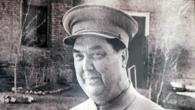– a diligent student and efficient employee, this is how his acquaintances and friends saw him in his youth and see him now. Coming from a simple family, he became one of the richest businessmen in Russia, taking the helm of the main enterprise in the Russian oil and gas industry. We have prepared a special photo report about notebooks, personal stallions, millions of US dollars and love for Alexey Miller’s yachts.
A key role in the fate of Alexey Miller was played by his colleague on the External Relations Committee (FRC) of the St. Petersburg City Hall. It was his immediate supervisor in 1991, Vladimir Putin. After Putin became president of the Russian Federation in 2000, his former subordinate Miller moved to Moscow and took the post of Deputy Minister of Energy of the Russian Federation. Alexey Borisovich Miller appeared at Gazprom in 2001 as chairman of the company’s board. Also, since 2001, he has been Deputy Chairman of the Board of Directors of the companies "", "" and "".
Here are entertaining excerpts from the article “Alexey Miller’s School Notebooks,” which was written by one of his classmates:
“My parents were simple people. Miller also did not come from aristocrats: his father was an assembly mechanic, his mother was an engineer. Both worked at the same enterprise - NPO Leninets, which still develops on-board equipment for aircraft. Alyosha’s father died early from cancer, and his mother is still alive. He was the only child in the family.
This episode was told to me by Alexei Borisovich’s classmate Alla. Lesha Miller never skipped class. One day the class gathered for an excursion to Pushkin. The head teacher said: “Take thermoses with you. But just in case, take notebooks as well: the excursion may be canceled and then you will study.” Everyone came to school with only thermoses. Only two excellent students - Miller and Kibitkin - brought notebooks, as they were told. When they announced that the excursion would be cancelled, everyone fled out of town, but Kibitkin and Miller stayed behind. It seems that even in short pants he knew what he wanted..."
“The hyper-cautious Alexey Borisovich not only ran from floor to floor with pieces of paper and solved his career problems. He also helped Peter get loans. According to some analysts, a number of large Western companies - Coca-Cola, Wrigley, Gillette and others took root on the banks of the Neva, in no small part thanks to Miller. He, together with Putin, brought large Western banks such as Dresdener Bank and Lyon Credit to the city and generally played a key role in attracting foreign investment. Skeptics, however, reduce Putin’s favorite to a cog in the nomenclature’s paperwork machine. “All things,” they say, “were driven personally by Sobchak and his advisers. Miller was not assigned serious topics due to lack of experience." "Arrogant, touchy, complex. Unpleasant to communicate with. Having become a big boss, he could force the Western delegation to wait 30-40 minutes in his reception room. At the same time, the manager is zero... The key color in the description is gray. I walked along the wall." But the truth is that Miller was at the origins of the creation of the first investment zones in the Pulkovo Heights area. He also represented the interests of the city in joint ventures and oversaw the hotel business - he was on the board of directors of the Europe Hotel.
You can learn more about the life of the king of Gazprom from our PHOTO REPORT.
Alexey Borisovich Miller (January 31, 1962, Leningrad) - Russian economist, chairman of the board of Gazprom.
Education
He received his secondary education at school-gymnasium No. 330 (Leningrad), from which he graduated with honors.
1984 – graduated from the Leningrad Financial and Economic Institute. He was one of the Leningrad economists-reformers, whose leader was A. Chubais.
Alexey Miller is a Candidate of Economic Sciences.
Professional activity
1984-1986 - was an engineer-economist at LenNIIproekt. Soon he became a graduate student here.
1990 - becomes a junior researcher at LenNIIproekt;
1990-1991 - works in the Committee responsible for economic reform of the Lensovet Executive Committee.
1991-1996 - works in the Committee for External Relations of the St. Petersburg City Hall, where he holds the post of deputy chairman. It is worth mentioning that the chairman of this Committee was V. Putin. Under the leadership of the future president, Miller was involved in the development of investment zones in St. Petersburg, namely Pulkovo (the Gillette and Coca-Cola factories were built here) and Parnas (the buildings of the Baltika brewing company were built). In addition, he brought the first foreign banks to St. Petersburg (Lyon Credit, Dresden Bank).
1996-1999 - holds the post of director for investment and development of the seaport of St. Petersburg.
1999-2000 - is the general director of the Baltic Pipeline System company.
2000-2001 - holds the position of Deputy Minister of Energy of Russia.
2001 - becomes chairman of the board of Gazprom. The press characterized this appointment as Putin’s desire to completely control the gas empire. Miller, in turn, stated that he intends to strengthen the role of the state in Gazprom.
2002 - became deputy chairman of the board of directors of Gazprom. In addition, he heads the boards of directors of Gazfond, Gazprombank, Gazpromneft and SOGAZ.
2012 - becomes chairman of the board of directors of the Russian Hippodromes company.
In 2012, Forbes compiled a list of the highest paid Russian top managers, in which Miller took second position. The publication estimates that he earned about $25 million in one year.

Family status
Alexey Miller and his wife Irina are raising their son Mikhail. Personal life is not discussed. He tries to spend his free time in a quiet family circle.
According to Alexey Miller, business is something between war and art. Some of Miller’s colleagues are confident that he achieved success thanks to his diligence and hard work. According to Alexey Borisovich himself, he always tries to achieve his goal, to believe in himself and his partners.
As soon as A. Miller took up an important post at Gazprom, they began to speak about him as follows:
- “His main advantage is his ability to bow”;
- “Walks along the wall”;
- “Arrogant, complex, touchy, unpleasant to talk to”;
- "Zero Manager";
- "Prepared figure";
- “He lives like a shadow and serves like a shadow.”
However, in 2010 A. Miller took 3rd position in the list of the best top managers in the world. This list was published by the Harvard Business Review. CEO performance was measured by shareholder returns.
Miller is annoyed by buffet tables, banquets and noisy companies. His hobbies include playing the guitar and skiing. In addition, he owns 2 stallions – Fragrant and Vesely. The latter took a prize in one of the races at the Moscow Hippodrome in 2012. In turn, Fragrant came to the finish line first 7 times, and was a prize-winner 12 times.
Alexey Miller is vice-president of the Russian Football Union. He is a fan of Zenit.
Advice from Alexey Miller: “Dreaming is useful! After all, what is planned can become reality.”
Alexey Miller is the head of OJSC Gazprom and the most expensive Russian manager. He is a member of the board of directors of SOGAZ, Gazprombank, NPF Gazfond and OJSC Russian Hippodromes. Has a PhD in Economics. Awarded several state orders. In this article you will be presented with his biography.
Childhood
(see photo below) was born in Leningrad in 1962. The boy grew up in the Nevsky district of the city. Alexey’s parents worked at the Radio Electronics Research Institute under the Ministry of Aviation Industry. Later the enterprise was transformed into NPO Leninets. The boy’s father died early from cancer, so Alyosha’s mother was involved in raising him.
At school, Alexey studied excellently, but did not receive a gold medal. This was due to the fact that in the year of its completion the regional quota for medalists was exhausted. The boy was also a member of the Komsomol committee. Miller was not remembered by his classmates for anything special. He wasn’t friends with anyone, but he didn’t let anyone offend him either. His former classmates were very surprised when they learned that the inconspicuous and quiet Alexey Miller headed the most successful Russian corporation.
Education
In 1979, he easily passed the entrance exams to the University of Finance and Economics. The young man studied just as well as at school. Alexey specialized in the Department of National Economy. Professor Igor Blekhtsin became his mentor. He tried to instill in Miller a love of chess, but the young man loved football more.
At the institute, Alexey did not stand out in anything special, except for his studies. The young man had smooth relationships with his classmates. He did not attend student parties and did not have whirlwind romances with fellow students. Miller's only hobby was football. He passionately supported Zenit and did not miss a single game of his favorite club. Alexey was simply happy when his favorite team became the USSR champion in 1984. Now it is thanks to his support that Zenit is the wealthiest club in Russia.
Interview with the KGB
The institute where Alexey Miller studied was supervised by KGB officers. The modest young man attracted their attention. But, unfortunately, the young man did not pass the first interview. The formal reason was health. In fact, Miller was refused due to the presence of repressed German relatives on his father’s side. Alexey was very upset, since he hardly remembered his father, and all he had left from his relatives was his last name. But the KGB was irreconcilable and did not change its own decision.

First job
After graduating from university, Alexey Miller got a job in one of its planning departments - LenNIIproekt. Then Blekhtsin gave him a recommendation, and the young man went on to graduate school, defending his Ph.D. thesis. As at school and university, Alexey did not stand out among his colleagues. He remained the same quiet and modest person. True, he joined the “Club of Young Economists” as a member. At that time, it was headed by the still unknown Anatoly Chubais. But Miller practically did not perform there. For the most part, he listened. Among the speakers were Pyotr Aven, Mikhail Manevich, Sergey Ignatiev, Mikhail Dmitriev and Andrey Illarionov. Subsequently, all the club's lecturers reached considerable heights.
Economic Reform Committee
In 1990, perestroika began, which led the country to collapse. All participants and lecturers of the Young Economists Club had the opportunity to put their ideas into practice. Some of them went into business, and some into politics. Chubais took the latter path. Anatoly Borisovich was elected to the Leningrad City Council and became deputy chairman of the executive committee. The chairman was Anatoly Sobchak. He trusted Chubais and allowed him to deal with all economic issues. Within the Leningrad City Executive Committee, Anatoly Borisovich organized an economic reform committee and put it at its head. And he, in turn, invited Mikhail Manevich and Alexey Miller to work.

Leadership position
In 1991, the reform committee was liquidated. This happened due to the fact that Sobchak became mayor and began reformatting the apparatus of the Leningrad City Executive Committee. And there was no place for this committee in the new structure. still advised Sobchak on economic issues. Therefore, it was not difficult for him to organize a new Committee for the management of the free enterprise zone in Leningrad. It was headed by Kudrin, already familiar to us. Alexey Miller, whose personal life is described below, also expressed a desire to work there, since he oversaw a project to organize a free economic zone in Leningrad. But Anatoly Chubais had other plans for him. He sent Alexey Borisovich to the Committee on Foreign Economic Relations (KBC) organized at the mayor's office. Moreover, the future head of Gazprom immediately took the position of head of the market conditions department.
Career takeoff
At KVS, Miller's career took off. 5 years later he was deputy chairman of the Committee on Foreign Economic Cooperation. Partly, Alexey Borisovich got this place thanks to his hard work. But the main reason was that Vladimir Putin, who then held the post of Chairman of the KVS, liked Miller.
Ideal Performer
Alexey Borisovich quickly worked well with Vladimir Vladimirovich. After all, he, like Putin, did not like to be the center of attention. The future head of Gazprom, Alexey Miller, diligently went about his business, was aware of all important matters and never talked too much. In a word, he “kept his head down.” Alexey Borisovich helped St. Petersburg and foreign companies find each other. At the same time, Miller did not sign important documents and did not make sensitive decisions. His name has never surfaced in connection with high-profile scandals or criminal cases. Alexey Borisovich tried to be like his boss in everything. For example, he, like Vladimir Vladimirovich, did not attend noisy buffets and public events, which Mayor Sobchak loved to attend.

Job responsibilities
In the committee, Alexey Miller, whose nationality is of interest to many because of his, say, not quite Russian surname, was responsible for the Pulkovo economic zones, where the Gillette and Coca-Cola companies were located. He also supervised Parnassus and Baltika. During his time at KVS, Alexey Borisovich was remembered for bringing such foreign banks as Lyon Credit and Dresdener Bank to St. Petersburg. And on the instructions of Vladimir Vladimirovich, he attracted foreign investment to the Northern capital. All issues were resolved by Miller quickly and competently. A. Miller represented the interests of the city in joint ventures and oversaw the hotel business - he was on the board of directors of the Europe Hotel.
Loss of position
In 1996, Anatoly Sobchak lost the elections and left office. Putin and his team were also forced to leave the mayor's office. Vladimir Vladimirovich left for Moscow, where he took the position of deputy manager of the affairs of the head of the Russian Federation. And Miller remained in St. Petersburg, becoming deputy director of Sea Port OJSC. At the same time, he did not lose contact with his former boss. When Putin headed the government of the Russian Federation in 1999, Alexey Borisovich became director of the Baltic Pipeline System OJSC.

New Heights
With the arrival of Vladimir Vladimirovich as head of state, great career prospects opened up for Miller. In mid-2000, Alexey Borisovich was appointed Deputy Minister of Energy and oversaw the development of international cooperation in the fuel and energy sector. Everyone thought that he was doing an internship before taking the minister's chair. But in May 2001, he headed not the Ministry of Energy, but Gazprom. Alexey Borisovich Miller replaced R.I. Vyakhirev in this post.
Frame cleaning
For the management of the gas company, such a decision by the President of the Russian Federation came as a complete surprise. The corporation's management learned this news only an hour before the next meeting of the board of directors. On it, Alexey Borisovich was presented as the head of the company. In his speech, Miller mentioned that he would adhere to the “continuity” of Gazprom’s policy. But top managers suspected that Vyakhirev’s staff would soon be purged. The start of A. Miller's work, it is worth noting, was rather sluggish, although the market took the news of the change of management enthusiastically - investors decided that it was time for reforms. True, they themselves did not begin immediately.
As a result, Gazprom Chairman Alexey Miller not only replaced most of the personnel, but also turned the corporation’s treasury into an inexhaustible financial source for the Kremlin’s needs. Putin was pleased with the results of his work. The main merit of Alexey Borisovich is that he was able to return a controlling stake in the company to the state, and Gazprom itself returned all the assets that were lost under R.I. Vyakhirev.
Miller also decided to refocus the corporation on business globalization. Under him, Gazprom acquired assets in the oil sector and electric power industry, increased the share of gas in imports to 40% (supplies to Europe), and also established contacts with the Italian ENI and the German BASF and E.On.

Construction of gas pipelines
Miller was the initiator of the construction of the North European Gas Pipeline. It was planned to carry it through the Baltic Sea, bypassing the countries providing gas transit to Europe. The construction date was set to 2005. But due to the fact that the authors of the project were unable to prepare a long-term business plan, pipe laying began only in 2010. It was also decided to give the project a new name - “Nord Stream”
In addition, Alexey Borisovich is actively working on laying the South Stream through the Black Sea. A number of contracts on gas supplies to the Asia-Pacific region were signed. Miller also pushed through the decision to abolish state regulation of domestic prices. But criticism of Alexey Borisovich does not subside.
Criticism
The head of Gazprom does not pay any attention to her. Even despite some health problems (due to kidney problems, Alexey Borisovich was forced to give up his favorite beer), he is not going to resign. And who would leave such a highly paid post of their own free will?
However, the attacks on Miller continue unabated. Thus, his project to build a skyscraper for Gazprom on the banks of the Neva was subject to very harsh criticism. If the 396-meter building were erected, it would completely disfigure the entire architectural style of the city. The residents of St. Petersburg achieved the cancellation of construction by expressing a lot of unpleasant things to Alexey Borisovich.
Another area of criticism was Miller's love of luxury. In 2009, photographs of his proposed estate being built on the banks of the Istra Reservoir went viral on the Internet. The wits called it “Millerhof”. The experts modestly kept silent about the cost of construction. Miller himself categorically denies that he has anything to do with the estate. Moreover, critics have no evidence. However, nothing surprising. As a rule, persons of this level are constantly attacked by the yellow press, which attributes to them all kinds of conceivable and unimaginable sins and actions.

Personal life and hobbies
The head of Gazprom, Alexey Borisovich Miller, does not like to talk about his personal life. It is known that for many years he has been officially married. His wife named Irina is a non-public figure. Since the wedding, she has not worked anywhere and has only been doing housework. Irina does not like to attend social events, like Alexey Miller. The couple also have children. More precisely, only one child - son Mikhail. But there is no information about him in open sources.
From a young age, Alexey Borisovich has been interested in football and is a fan of the Zenit club. Miller also enjoys horse riding. The chairman of Gazprom owns two thoroughbred stallions. Alexey Borisovich is also no stranger to parties, but only with family and friends, whom he entertains by playing and singing the guitar.
Over time, Alexey Borisovich’s interest in equestrian sports grew into work. In 2012, Vladimir Putin appointed Miller to the position of head of Russian Hippodromes OJSC. The main task set by the president is the revival of domestic equestrian sport.
Two rules
There are two rules that Alexey Miller adheres to in life. He headed Gazprom only thanks to their compliance. These rules sound like this: “the boss is always right” and “keep your head down.” This is the secret of Alexei Borisovich’s dizzying career. Despite criticism of Miller, Putin still trusts him completely. This suggests that in the near future nothing threatens the position of the head of Gazprom.
Income
Quite a lot of people are interested in how much does Alexey Miller earn? In 2013, Forbes ranked him third in its ranking of the most successful and expensive managers in the world. According to the magazine, Alexey Miller's income is a very significant amount with numerous zeros. But there is no official data on this matter. Therefore, we are not able to give a real figure, and, in principle, there is no need for us to count other people’s money. Everyone understands that Gazprom is a rich company, and therefore wages there are an order of magnitude higher than in other industries.
Alexey Miller is known as the Chairman of the Board of Directors of the largest gas producing company in the world, PJSC Gazprom. In addition, Miller is a fan of Zenit, enjoys equestrian sports and has many titles and awards.
- FULL NAME: Miller Alexey Borisovich.
- Date of Birth: January 31, 1962 (56 years old).
- Education: Leningrad Financial and Economic Institute named after. N. Voznesensky.
- Start date of business activity: 1984 (22 years old).
- Job title: Russian economist, regional head, statesman, chairman of the board and deputy chairman of the board of directors of PJSC Gazprom.
- Current state:$27 million (Forbes, 2015).
Alexey Borisovich Miller received his higher education at the St. Petersburg Financial and Economic Institute named after. N. Voznesensky. Later - the title of Candidate of Economic Sciences. He began working in 1984 at the age of 22 in the LenNIIproekt organization. Subsequently, he consistently and confidently climbed the career ladder. Now he is the Chairman of the Board and Deputy Chairman of the Board of Directors of PJSC Gazprom. According to Forbes, his annual profit for 2015 amounted to $27 million, and this allowed him to become the most expensive top manager in Russia for the first time. Miller has an information column on the official Gazprom website.
short biography
Alexey Miller was born on January 31, 1962 in Leningrad. Parents worked at the closed defense enterprise NPO Leninets and developed aviation equipment.
Graduated from school-gymnasium No. 330 with honors.
In 1984 he received higher education, in 1989 he defended his Ph.D. thesis.
In the 80s he was an economist-reformer, led by A. Chubais.
In 1987, he was a member of the “Sintez” club, where there were representatives of the younger generation from different fields of activity.

Start of work
In 1984, Alexey Miller began working at LenNIIproekt in his specialty. He held the position of engineer-economist. He interrupted his career to attend graduate school. Upon his return in 1990, he was appointed junior researcher. He also worked in the Economic Reform Committee of the Leningrad City Council Executive Committee.
In 1991, there was a sharp rise up the career ladder and an acquaintance with V. Putin. In 1991 - 1996 - worked at the St. Petersburg mayor's office in the committee for external relations, established contacts with the largest banks in the West. Changed positions:
- Head of the Department for Market Issues of the Administration of Foreign Economic Relations;
- Head of the Administration of Foreign Economic Relations;
- Deputy Chairman of the Committee.
In 1996, he left the St. Petersburg City Hall and headed OJSC Sea Port of St. Petersburg.
In 1999 - General Director of OJSC Baltic Pipeline System.
Gazprom
Since 2000, he was in Moscow and was the Deputy Minister of Energy of the Russian Federation. In 2001, he became chairman of the board of Gazprom, and since 2002, deputy chairman of the board of directors.
The arrival of Alexey Borisovich to this position predicted powerful transformations. And they came instantly. The company became controlled by the government, and work began on the reversion of assets that were lost under the former leader R. Vyakhirev.
Alexey Borisovich is constantly re-elected by the holding's board of directors to the position of chairman of the board. In 2016, his contract was once again extended for five years.
This is interesting! PJSC Gazprom is in seventeenth place in the list of largest energy companies according to SandP Global Platts. In addition, he is among the top ten.
The organization accounts for 11% of global and 66% of Russian gas production. The state controls over 50% of the shares. Alexey Miller owns 0.000958% of the company's shares.
In 2018, Gazprom, together with the five largest energy companies in the world, despite the threat of sanctions, began construction of the main gas pipeline.
Personal life
Alexey Miller does not talk much about his family. There is a daughter from his first marriage. The current wife Irina is not a public person. Together with her husband, she is raising her son Mikhail, who, like his father, is a fan of the Zenit football team.
In his free time, the top manager can be seen with his family. He also loves cycling and skiing. He is interested in horse riding and owns several thoroughbred stallions. His passion for horses at one time resulted in active work. In 2012, he received a position at Russian Hippodromes OJSC and became chairman of the board of directors. Later, the President issued a decree in which he set Miller the task of reviving the domestic equestrian sports industry.
Doesn't like buffets or noisy companies. He prefers them to playing the guitar. You can often meet him at Zenit matches. Now he is vice-president of the Russian Football Union (since 2010)
The band Deep Purple has always been his childhood passion, so now he doesn’t forget to attend the performances of his youth idols.

Titles and awards
Alexey Miller has many titles and awards:
- Order “For Merit to the Fatherland”, 1st and 4th degree (2006, 2017).
- Order named after A. Nevsky (2014).
- Order of Honor (2009).
- Order of St. Sergius of Radonezh (ROC).
- Order of the Holy Venerable Seraphim of Sarov (2009).
- Title of Honorary Citizen of the city of Astrakhan (2008).
- Prize of the Government of the Russian Federation in the field of science and technology (2010).
- Order of Labor (2011).
- Order of Friendship (2015).
- Certificate of Honor from the President of the Russian Federation (2012).
Current state
There is currently no reliable information about Miller's earnings status. He did not make his current position public for a long time. Forbes last reported data in 2015, when his income increased from $25 million to $27 million.
The head of Gazprom is building himself a luxurious palace in the style of the 18th century worth $50 million.
Design documentation for the proposed future residence of Gazprom head Alexei Miller, which looks like a huge palace in the style of the 18th century.
An impressive palace, very similar to the mansion in Peterhof, that suddenly grew up on the banks of the Istra Reservoir initially caused a lot of noise in blogs.
But officially, the head of Gazprom, Alexey Miller, who was listed as the real owner of the palace, did not admit that he had anything to do with it.
“Our company has nothing to do with the Istra Estate,” said Gazprom press secretary Sergei Kupriyanov. But at the same time belonging
Miller categorically refused to comment on the mansion, that is, he neither confirmed nor denied it.
The trick is that this palace used to be on, but now it’s not there, see the photos at the end.
One can only guess how serious this person is that even Google is hiding this palace.
All residents of the village of Berezhki who agree to talk about the estate are sure that it is Miller’s palace. There are basically no other versions.

“This is definitely Miller’s palace. He even came here three or four times,” says Sergei, a Berezhkovka resident. Minority shareholder of Gazprom Alexey Navalny and former State Duma deputy, leader of the Moscow region branch of the Right Cause party Boris Nadezhdin confirmed that Miller owns the palace, citing their sources.

In the village of Berezhki, the palace and park ensemble is visible from everywhere. The main house, as it appears in the project documentation, flaunts in the very center of a gigantic plot of 31 hectares. The blue pseudo-baroque building is decorated with white vases along the perimeter of the roof. Most of the territory is surrounded by a high concrete fence. On the water side, the fence is mesh, and other buildings are clearly visible. An artificial canal (there is no water in it yet) leads from the palace to the pavilion; along it, on both sides, there is a French-style park with future fountains. There is also a garage and a turret with a weather vane of unclear purpose.

The administration of the rural settlement of Sokolovskoye, to which Berezhki belongs, claims that construction has been going on for about five years. The territory of 31.9 hectares (according to the Federal Real Estate Cadastre Agency) was purchased from local residents, who, as a result of privatization in the 90s, were given 1.5 hectares of land. On November 5, 2003, the government of the Moscow region changed the purpose of the site from “agricultural land” to “settlement land” (Resolution No. 642/40), which allowed construction to begin on it. According to the head of the administration, Marina Veremeenko, there were no complaints about the construction from local residents arrives. “Once upon a time, we went to the site to check because of complaints about garbage, but since then everything has been fine,” Veremeenko said. Residents of Berezhki, indeed, say that they have nothing against the construction of the local Peterhof (the palace is very reminiscent of it), “the main thing is that the river is not spoiled.”

Local resident Alexey says that several years ago he worked at a construction site and was paid very well there. “At first there were 600 workers here, but now there are about 300,” he says. Next to the palace, behind the same fence, the Istra Estate cottage community is being built. The customer of the project, as the sign says, is the company Stroygazconsulting, and the general contractor is CJSC Delor. Both the palace and the cottages are guarded by the same private security company, Stone. One of the guards, escorting the Gazeta.Ru correspondent away from the construction site, says that he is guarding an object of national importance, but what it is and who it belongs to, they say refuses. No more than six cottages and a church are being built in the village. Delors, where the correspondent called, does not deny the fact of construction, but refuses further comments. Locals are sure that “Miller’s friends” will live in the cottages around. Across the road, also behind a massive fence, are several more technical buildings and trailers for workers.

Stroygazconsulting is a large company (it employs almost 30 thousand people), specializing in infrastructure projects for Gazprom, in particular, it is engaged in the construction of gas pipelines (Nord Stream and others). The president of the company is Ziyad Manasir, who is on the latest list of the most rich businessmen of the Russian version of Forbes magazine ranks 75th with a fortune of $500 million. The magazine calls Manasir a person from Putin’s entourage. The co-owner of Stroygazconsulting is Olga Grigorieva, the daughter of ex-deputy director of the FSB and Putin’s friend Alexander Grigoriev (former head of the State Reserve, who died suddenly in December last year). The company, which Gazeta.Ru contacted, honestly admitted that they were building a “baroque palace,” but for our own purposes. “We are building a palace in the style of the 18th century for ourselves. It is not a copy of Peterhof; rather, it was taken from all known palaces. We have money and we decided to spend it this way. Most likely, we will hold receptions here and receive delegations,” Victoria Mironova, head of the public relations department, told Gazeta.Ru. According to her, the palace has nothing to do with Miller personally or with Gazprom as a whole. . Why a rather highly specialized contractor would need a gigantic reception house remains a mystery.

The author of the project for the improvement and landscaping of the Istra Estate Park is the Bruns-Park company. Gazprom is in first place on the list of its clients. The company confirmed that in 2006–2007 they developed a project for the park, and it was accepted, but they refused to name the customer. It is interesting that Mironova knows nothing about the construction of a cottage village. According to her, Stroygazconsulting is building only a palace on the shore of the Istrinsky reservoir. At the same time, the department of Stroygazconsulting, which is responsible specifically for this project, confirmed the fact of construction, stating that “the cottages are not for sale, since they already have owners.” Gazeta.Ru managed to obtain a project for the construction of the cottage village “Istrinskaya Usadba”, the customer which is Stroygazconsulting. The project of the village was approved on December 12, 2006 at a meeting of the urban planning commission of the Moscow regional government. The village was divided into three sections, the total area of which was more than 37 hectares (5.8 hectares of which are occupied by communications), of which the development occupies about 9 thousand square meters. m. In total, on the territory of the cottage village there should have been 26 buildings, of which 6 were residential buildings. According to the agreed project, only 25 people were supposed to live in the village.

However, on October 23, 2008, the urban planning commission again reviewed and approved a slightly modified project for the Istrinskaya Estate. The area remained the same, but the number of residential buildings increased and amounted to 11. There are just five houses on the territory of the palace and park ensemble. Unlike the cottages still under construction, the palace and other buildings of the ensemble have already been completed. The deputy head of the Solnechnogorsk district administration, Vladimir Zaitsev, who gave permission for the advanced construction of these five houses on the territory of the village, in a conversation with Gazeta.Ru, could not remember either the palace or the park, although he recalled the project of the Stroygazconsulting company. “We haven’t heard anything from them lately,” said Zaitsev. The approximate cost of the Istra Estate, as calculated by Gazeta.Ru with the help of real estate specialists, is $50 million, even taking into account the decline in the market.

The general director of the Analytical Group of G. M. Sternik, Sergei Sternik, estimated the cost of 31.9 hectares at almost $16 million ($5 thousand per hundred square meters). The cost of the development, which the expert compared to a good country hotel, was estimated at $3 thousand per square meter, i.e. only $27 million. The cost is seriously increased by complex hydraulic structures that will make up a cascade of fountains, as well as the creation of a landscape park. Exclusive finishing work “a la Peterhof” may cause an additional increase in price. According to Mironova from Stroygazconsulting, “the palace costs no more than a standard panel house.” Gazprom’s minority shareholder Navalny is confident that Gazprom can even hide a skyscraper under another legal entity. “It may have been built for him, but in fact it was registered in the name of another person or company. There’s no way you can undermine it legally,” Navalny said.






